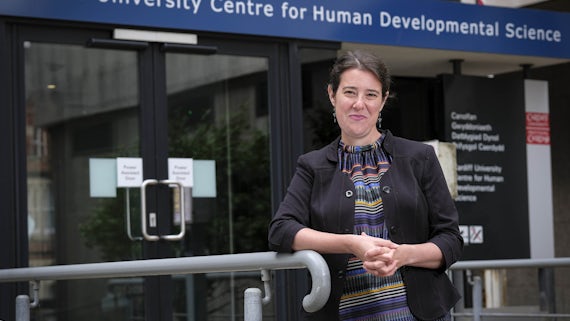It’s long been understood that opportunities for play, laughter and humour are vital ingredients for healthy and happy childhoods.
Now, research suggests that opportunities for play and humour are more vital than ever for children following a long period of uncertainty, worry and isolation caused by the COVID-19 pandemic.
Building on this research, a team from our School of Psychology are working with schools across South Wales and with national charity Play Wales to promote humour and play in the classroom. The project’s goal is to use humour and play to improve children’s wellbeing following the COVID-19 pandemic.
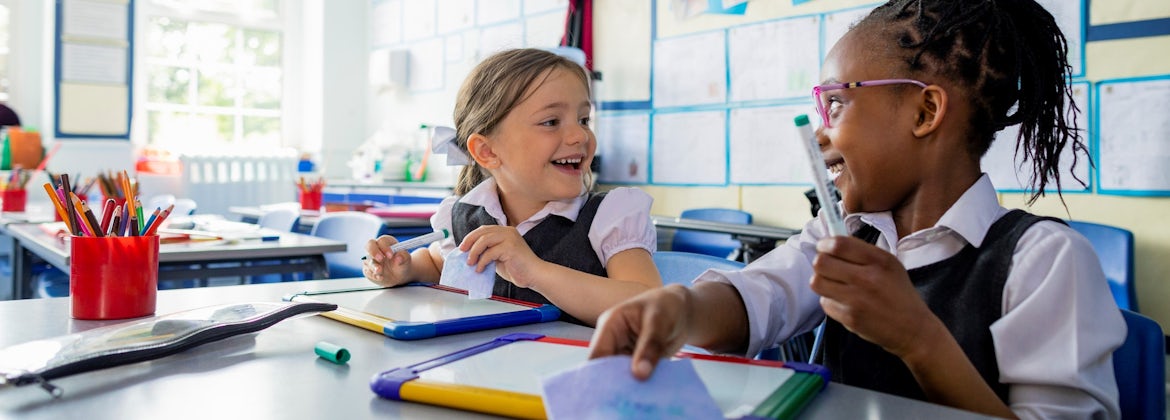
Research has shown that children’s sharing of humour is one of the building blocks to important cognitive, emotional and social skills.
Growing up in a pandemic
The social experiences of young children growing up in the COVID-19 pandemic have been drastically transformed in ways that are likely to affect their social development and their wellbeing.
According to a survey of 23,700 children and young people in Wales, the biggest impact of the COVID-19 pandemic has been ‘not being able to spend time with friends'.
Research highlights the vital importance of play with other children for social development. Similarly, children’s sharing of humour is one of the building blocks of warm and playful relationships that serves many important cognitive, emotional and social functions.
"Humour is really interesting," says project lead Dr Amy Paine. "It requires a lot of cognitive skills and relates to many other skills that children are developing, like social understanding and understanding the emotions of others."
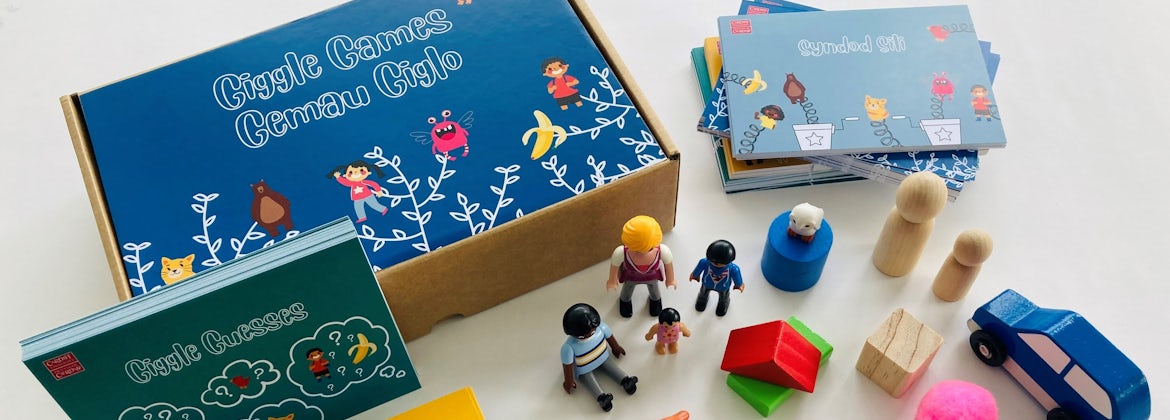
The project team have created a set of 'Giggle Games' for teachers to use in their classrooms.
Giggle Games
To promote humour and play in the classroom, the project team is designing and producing free resources and classroom games for Foundation Phase teachers and children in South Wales.
Working with teachers and educational professionals, the team have created a set of ‘Giggle Games’ – Silly Story Stems, Giggle Guesses, Silly Surprises and Ridiculous Rhymes – along with guidance for teachers on how to incorporate these into the classroom.
“Our priority is to target schools that may not have engaged with researchers before, and in areas that may experience more disadvantage and inequalities, particularly via COVID-19, such as the South Wales Valleys,” says Dr Paine.
The team are also working with Play Wales, the national charity for children’s play, who have been feeding in their expertise and ideas on the design of the resources. The aim is to support teachers in bringing humour and its benefits into the classroom setting.
“It’s not about giving children one opportunity to share humour and laughter,” explains Dr Paine. “It’s about giving teachers the tools they need, and emphasising to both teachers and children that humour and laughter have a place in the classroom.”
“This isn’t a band-aid to the challenges that children face, but we hope it can be part of a holistic change to improving wellbeing.”
Working with teachers
The project team invited teachers from schools across the Rhondda Cynon Taf area to focus groups to discuss what play means to them, and how they use humour and play in the classroom. They also discussed how this changed during and after the pandemic.
Some of the teachers noted how the pandemic had made their jobs more challenging, and the effect it has had on children’s wellbeing, with one participant saying, “[In the pandemic] everything’s been so serious and not very nice, and you want the school to be a safe and happy and fun place for them to come to.”
Others explained how play and humour was important to them in the classroom. “I think it puts lots of children at ease and comfortable,” said one participant. “Generally, I think they have a giggle and they have a laugh and they just feel a bit more at ease.”
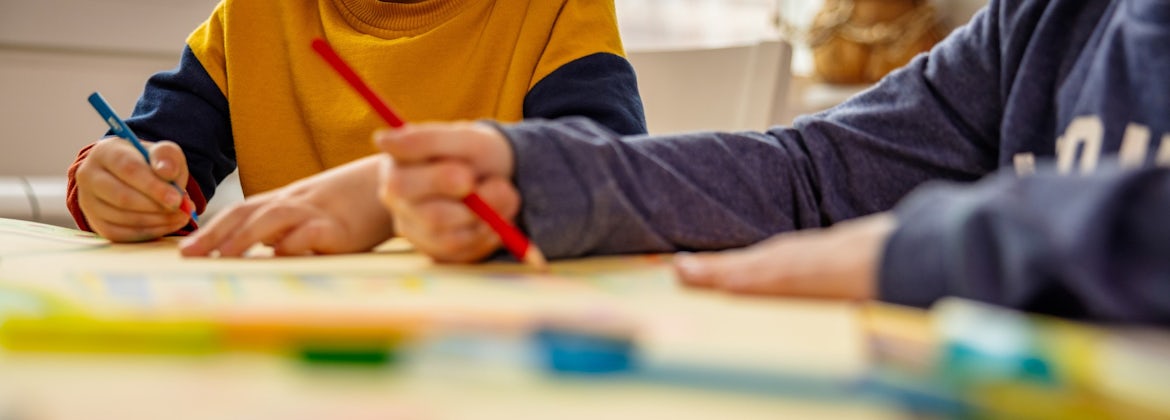
Schools in the north and south east of England have also committed to using the Giggle Games resources in their teaching.
Looking to the future
Following the use of the Giggle Games resources in schools across South Wales, the team hope to expand the scale and reach of the project. The team have established links with schools in the north and south east of England and these schools have also committed to using the Giggle Games in their Foundation Phases, expanding the reach of this project both within Wales and the rest of the UK.
This project will form a cornerstone of a subsequent bid for grant funding to further understand the importance of humour in childhood. Dr Paine and her research team are continuing their research into the role of humour in children’s development and wellbeing in the ‘Humour in Childhood: Pathways to Better Wellbeing’ project, funded by the Economic and Social Research Council. Together, these projects will provide evidence to inform the development of policy related to children’s play in Wales.
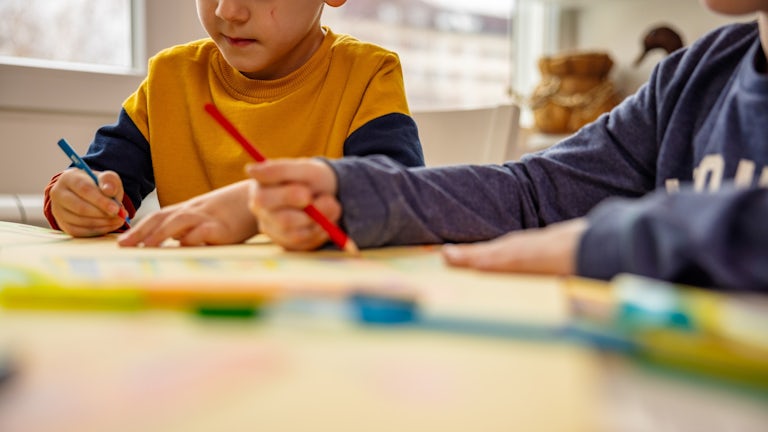
Our local community projects
We use our wide range of expertise to support and deliver impactful community led projects alongside student and staff volunteers.




